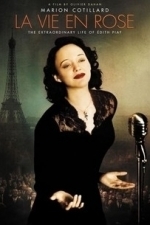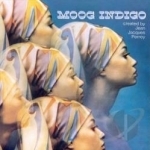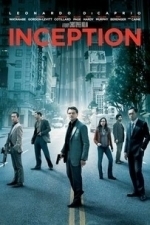Search
Search results
Sarah Paulson recommended La Vie en Rose (La Mome) (2007) in Movies (curated)
Joey Santiago recommended Moog Indigo by Jean-Jacques Perrey in Music (curated)
Justin Patchett (42 KP) rated Inception (2010) in Movies
Mar 13, 2019
Masterful visuals, including many practical effects wonders (1 more)
Extraordinary score by Hans Zimmer
Relationships bud in the film, but feel forced (1 more)
A few plot-holes, albeit none thoroughly distracting
Contains spoilers, click to show
With two of the most scathing reviews I’ve written under my belt, I figured it was time to write about my favorite movie of all time, Christopher Nolan’s “Inception.”
“Inception” revolves around Dom Cobb (Leonardo DiCaprio), a spy who uses military-grade technology and shared dreams to extract information from his marks. He and his team are unwittingly tested by their latest target, Mr. Saito (Ken Watanabe) for recruitment into a different kind of job: Inception, a type of job using the same skills and technology to implant an idea. In particular, Saito calls on Cobb to plant an idea on his business competitor, Robert Fischer (Cillian Murphy). In spite of his reluctancy about this type of job, Saito’s offer to clear Cobb of a murder charge sways Cobb in favor of taking the job.
Cobb gathers new help, including Ariadne (Ellen Page), an architect he finds capable of creating complex labyrinths. With the help of a deep sedative, the team is able to make Fischer have dreams within dreams within dreams, a method that makes the mark more receptive to the implanted idea. It comes with a cost, though: The dreams become more unstable as they continue going deeper into the dream world, and the sedative itself creates the risk of actual death within the dream.
First of all, let’s talk cast. Already, we’ve got four top-grade talents named, but we also have Joseph Gordon-Levitt as Arthur, Cobb’s point man, Tom Hardy as Eames, a forger, and additional roles filled by Marion Cotillard and Michael Caine. Nolan did not lack for talent in this one, and by gosh it shows.
Visually, “Inception” excels most with making the impossible as real as cinema can make it. Throughout the film, characters are able to manipulate the rules of the dream world, making for moments where fruit explodes, cities bend, and stairwells become endless. Beyond portraying the impossible, though, the film has to show the real world, too. In those scenes, an aesthetic that can’t exactly be placed takes over. The technology has a slightly retro-futuristic feel to it, while the fashion and settings rely on classic tastes. Even Hans Zimmer’s score, which samples from the work of vocalist Edith Piaf, contributes to the chronological ambiguity of the movie. By not being able to place the film’s setting in any particular year or even decade, it seems prepackaged to become a classic film.
Speaking of Zimmer, he’s is at his best with this score. The complexity of the film reflects in a layered score, and listening to it on its own is its own sort of treat. It’s one of those symphonic recordings that the listener will pick out something they never noticed before every time.
But even above the stellar cast and visuals that have inspired reality-bending sequences in films since, this film’s biggest success is its use of approachable themes and concepts to tell a story within a story. Nearly a decade after its initial release, fans have widely circulated the idea that “Inception” is a film about storytelling. Concepts as basic as nesting stories within stories play out many ways across the plot. It also plays with common experiences in dreams, turning experiences like the feeling of falling into tools for Cobb’s team to exploit. Essentially, if you can dream, you already have a primer in this film’s core principles.
It’s not without flaws, as no film is. Certain moments fail to hold up upon closer inspection. For instance, the relationship between Ariadne and Arthur comes across forced. Those moments aside, from its foreshadowing opening to its meaningfully open-ended ending, “Inception” is an absolute marvel.
“Inception” revolves around Dom Cobb (Leonardo DiCaprio), a spy who uses military-grade technology and shared dreams to extract information from his marks. He and his team are unwittingly tested by their latest target, Mr. Saito (Ken Watanabe) for recruitment into a different kind of job: Inception, a type of job using the same skills and technology to implant an idea. In particular, Saito calls on Cobb to plant an idea on his business competitor, Robert Fischer (Cillian Murphy). In spite of his reluctancy about this type of job, Saito’s offer to clear Cobb of a murder charge sways Cobb in favor of taking the job.
Cobb gathers new help, including Ariadne (Ellen Page), an architect he finds capable of creating complex labyrinths. With the help of a deep sedative, the team is able to make Fischer have dreams within dreams within dreams, a method that makes the mark more receptive to the implanted idea. It comes with a cost, though: The dreams become more unstable as they continue going deeper into the dream world, and the sedative itself creates the risk of actual death within the dream.
First of all, let’s talk cast. Already, we’ve got four top-grade talents named, but we also have Joseph Gordon-Levitt as Arthur, Cobb’s point man, Tom Hardy as Eames, a forger, and additional roles filled by Marion Cotillard and Michael Caine. Nolan did not lack for talent in this one, and by gosh it shows.
Visually, “Inception” excels most with making the impossible as real as cinema can make it. Throughout the film, characters are able to manipulate the rules of the dream world, making for moments where fruit explodes, cities bend, and stairwells become endless. Beyond portraying the impossible, though, the film has to show the real world, too. In those scenes, an aesthetic that can’t exactly be placed takes over. The technology has a slightly retro-futuristic feel to it, while the fashion and settings rely on classic tastes. Even Hans Zimmer’s score, which samples from the work of vocalist Edith Piaf, contributes to the chronological ambiguity of the movie. By not being able to place the film’s setting in any particular year or even decade, it seems prepackaged to become a classic film.
Speaking of Zimmer, he’s is at his best with this score. The complexity of the film reflects in a layered score, and listening to it on its own is its own sort of treat. It’s one of those symphonic recordings that the listener will pick out something they never noticed before every time.
But even above the stellar cast and visuals that have inspired reality-bending sequences in films since, this film’s biggest success is its use of approachable themes and concepts to tell a story within a story. Nearly a decade after its initial release, fans have widely circulated the idea that “Inception” is a film about storytelling. Concepts as basic as nesting stories within stories play out many ways across the plot. It also plays with common experiences in dreams, turning experiences like the feeling of falling into tools for Cobb’s team to exploit. Essentially, if you can dream, you already have a primer in this film’s core principles.
It’s not without flaws, as no film is. Certain moments fail to hold up upon closer inspection. For instance, the relationship between Ariadne and Arthur comes across forced. Those moments aside, from its foreshadowing opening to its meaningfully open-ended ending, “Inception” is an absolute marvel.


